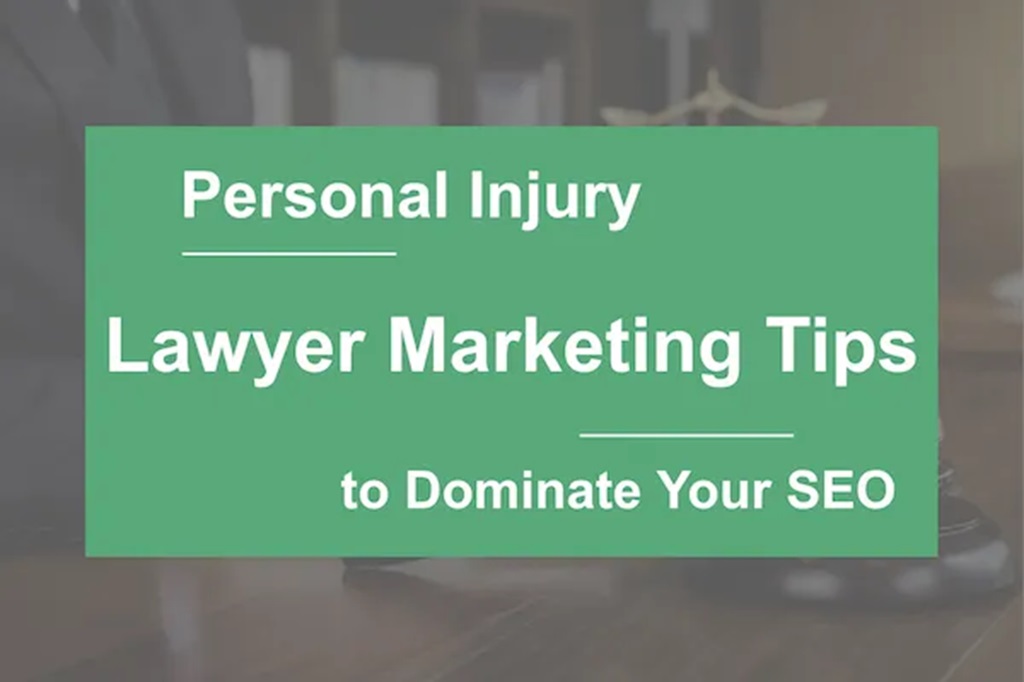Hey fellow attorneys! If you’re like me, you know how competitive the personal injury space has become. With so many choices, potential clients looking for legal help can easily get overwhelmed. That’s why having a strong seo for personal injury is critical for getting your law firm seen and connecting with potential personal injury clients in your area. When done right, you’ll have a steady stream of prospects contacting you instead of the other way around.
I’ll walk you through my best tips for dominating local SEO as a PI attorney so you can grow your firm and help more injured victims get the compensation they deserve. Let’s get started!

SEO for Personal Injury Plan
| SEO Task | Description |
| Keyword research | Identify relevant keywords that potential clients are searching for. |
| On-page optimization | Use keywords throughout your website’s content, title tags, meta descriptions, and header tags. |
| Off-page optimization | Build backlinks to your website from other high-quality websites. |
| Local SEO | Optimize your website for local search by listing it in local directories and using local keywords. |
| Social media marketing | Use social media to promote your website and connect with potential clients. |
| SEO tracking | Track your SEO results to see how you’re doing and make adjustments as needed. |
Understand Google’s Local 3-Pack
If you’ve ever Googled a service or business type near you, you’ve probably seen Google’s local 3-pack. It shows the top 3 local search results at the very top above the other organic results.
This is prime real estate for service-based businesses. Around 53% of mobile users will tap one of these listings to get directions or call that business.
So our first order of business is understanding how to show up here consistently.
There are 3 main factors that influence local 3-pack rankings:
- Local relevance signals – Address, location pages, GMB, and citations that place your business in a specific area.
- Local SEO signals – Quality and authority of website, on-page optimization, links and reviews pointing to location pages.
- Engagement signals – Calls, form fills, visits, reviews, and other signals showing local interest and interactions.
As we optimize each of these areas, our local SEO credibility improves in Google’s eyes. So let’s break down exactly how to nail each section.
Strengthen Your Local Relevance Signals
Google wants to connect searchers with the best local options near them. So we need to clearly define where we operate and focus on trust signals that reinforce our presence in specific serviced locations.
Here are key areas to optimize your firm’s local relevance:
Solidify Your GMB Listing
Your Google My Business listing is ground zero for communicating essential location information to Google.
Make sure your law firm’s GMB profile is completely filled out with accurate business info and category details. This helps Google understand the areas and types of law you specialize in.
I also recommend adding distinct location pages on your website that align with each GMB location you want to rank. Point the GMB listing to this matching page for optimal synergy.
For example, if you have a Downtown location GMB listing, have a webpage like yourdomain.com/downtown-location that includes the same address and contact info. More on optimizing these pages shortly.
Build Local Citations & Directories
Citations are basically mentions of your law firm’s business information appearing on trusted directories and listings across the web. This helps reinforce that your business has an established local presence.
Aim to build 30-50+ high-quality local citations from sites like:
- Yelp
- BBB
- Chamber of Commerce
- Industry-specific directories
- Local/regional business index sites
Make sure citations are consistent across all sites by using the same business name, phone numbers, and addresses. Inconsistent details can reduce credibility.
I recommend using Moz Local and BrightLocal to manage and build new citations over time. Be patient, as it takes effort to construct a robust citation profile.
Publish Location-Focused Pages
As mentioned in the GMB section, dedicated location pages that target the areas you serve can boost local rankings.
These pages should include the city name or neighborhood in the title and URL. Then in the content clearly state that you service that location and answer questions a local would ask.
For example yourdomain.com/boston-personal-injury-attorneys could outline your experience helping injury victims in Boston, highlight some large local case results, talk about having an office in downtown Boston, and so on.
Ensure your schema markup accurately represents the location focus as well. This ties the page directly to the associated GMB listing.
The more high-quality location pages you can create the better. I aim for at least 5-10 to start with and build over time. Think hub and spoke model with a main website then local pages branching off.
Optimize Critical Local SEO Signals
With solid local relevance established, the next key is demonstrating expertise and authority in the eyes of local searchers. This earns Google’s trust to rank your law firm’s website for valuable PI terms and phrases.
Craft Location-Based Content
You’ll want to focus a decent portion of your blog and content strategy specifically around serving locations you want to rank for.
For example, a post like “The 5 Most Common Car Accident Injuries in Miami” tells Google you have relevant expertise around helping Miami accident victims.
Make sure to link out to your Miami location page from content like this as well. The goal is connecting geo-targeted content to matching location pages to reinforce relevance.
Earn Local Links From Area Sites
Getting quality backlinks from websites related to the locations you serve also signals authority. For PI lawyers, this could be local news sites, radio stations, community organizations and more.
Outreach for guest posts and contributor opportunities on sites like these. Be sure to link back to location pages where you can.
I’ve also had success getting listed as a legal expert resource page on a few locally-focused sites. Having my bio and case results listed with a link has been huge for driving cases.
Optimize On-Page Elements Site-Wide
Don’t forget about core on-page optimization on top of location content! Ensure you optimize target keywords, titles, URLs, alt text, schema markup, etc. across your whole website.
This helps reinforce expertise around valuable search queries beyond just location terms. Things like “car accident settlement amounts” or related PI phrases.
The higher quality and more authoritative your whole site appears, the better all pages will rank locally. On-page SEO establishes overall site expertise and credibility.
Amplify Engagement Signals
The final piece is demonstrating active interest and engagement from real people interacting with your law firm online. This shows Google your business meets the needs of local searchers.
The more phone calls, contact form fills, consult requests and on-site activity you generate, the better. But a few standout signals I always recommend amplifying are reviews and local link building.
Get More Online Reviews
Positive online reviews are essential social proof for local services like law firms. But they also serve as a quality signal for Google itself.
Actively encourage happy clients to leave detailed Google and Facebook reviews describing their positive legal experience with your team. The Google Q&A sections are gold for local packs too.
I ask every single client to review us. Over time this builds up a mountain of 5-star credibility that has a huge influence on local rankings.
Earn Local Links Where Possible
Lastly, securing arrow backlinks from local company directories, chamber pages, sponsorship pages, and other sites can help a lot with local pack rankings.
See if you can get listed as a linked member on the state bar association site for your area. Maybe sponsor a local little league team and get a link from their website.
There are always opportunities to build a few authoritative local links if you get creative enough. Every additional trusted local link brings you up in Google’s eyes.

Track Your Local Rankings
As you optimize all the areas covered above, you need to track how your local SEO efforts actually impact rankings week-to-week and month-to-month.
Here are a few quick tips for tracking rankings:
- Use Google Business Profile Insights to monitor engagement metrics for your GMB listing. Are calls and views increasing over time?
- Check rankings manually for target location-focused keywords in Incognito mode. Where do your critical location pages fall? How close to page 1?
- Use tools like Moz Local, BrightLocal and Whitespark to track local pack rankings, citation consistency issues, and website authority metrics.
- Set up ranking reports in Google Search Console for key terms and location pages.
- Monitor website traffic sources and contacts/calls from organic search. Is there a steady upwards trend?
Stay patient and focus on continuous small improvements across all areas of local SEO. Over 3-6+ months you’ll notice the compounding benefits as you climb higher in local results.
Now go dominate those injury lawyer searches and get more locals contacting your firm! Let’s wrap up with some common local SEO questions from fellow attorneys.
Frequently Asked Questions
- How many locations should I target for a law firm?
I suggest starting with 1-3 key regions/cities to focus your efforts. Too many locations initially spread things too thin. Establish strong relevance signals for a centralized area first before expanding locally.
- Does having multiple locations help or hurt local packs?
Generally having two locations (like a main city plus a smaller suburb) helps boost local pack rankings. But I wouldn’t create artificial additional GMB listings just to manipulate local results. Keep them accurate to real serviced regions.
- What citations should be claimed first?
I always start with the core local directories first – Google My Business, Apple Maps, Bing Places, Yelp, YellowPages, etc. Then expand to niche legal directories, regional sites and community indexes to round out citations.
- How can I track phone calls from organic search?
Using call tracking numbers connected to location pages on your website is extremely helpful. This lets you directly see which geo-targeted pages result in calls. I use CallRail but there are other good options too.
- Is page speed a factor at all for local SEO?
Absolutely. Quick mobile page speeds increase engagement on location pages. And engagement is a top ranking signal! Make sure your website is optimized for fast speeds with compressions, caching, lightweight code and more. Every bit helps.
Wrap Up
There you have my complete guide to dominating seo for personal injury and standing out in Google’s pack for personal injury attorneys!
By building a solid citations profile, creating location-based content, earning local links, optimizing your website’s foundation, and amplifying positive signals of engagement over time – you’ll see more and more potential clients from local searches reaching out to your firm.
Embark on the journey of SEO for startups: scaling your online presence from the ground up with the mantra: just stay patient, focused, and consistently implement small improvements across all facets of local optimization. This diligent effort compounds over time, leading to substantial gains in visibility, credibility, and relevance in both Google’s algorithms and the eyes of local searchers.
Now get out there and start turning all those local leads into happy clients! You’ve got this.



